Symbolism in Short Story Examples
For a book to be a best-selling one, applying figurative languages to your literary that relates to the experiences of your readers at the same time those that breed new meanings of abused cliches guarantees your success. Classical literary works, most especially fictions, are so rich in symbolism in poetry which helps the masterpieces memorable. Through these symbols, readers can then relate to the characters despite not having any experiences.
Symbols are powerful tools in writing for this can bend and even break the conventional follies that are still practiced in today’s society. This gives men and women the idea that life can be represented with an ephemeral moment and simple and commonly ignored objects. Below is a critical analysis of a short story written by one of the worldly celebrated writers of all time, Han’s Christian Andersen, The Little Mermaid. You might have missed the significant symbols when you read this literary piece and this article ensures that you’ll never miss them again.
Symbolisms in Han’s Christian Andersen’s The Little Mermaid
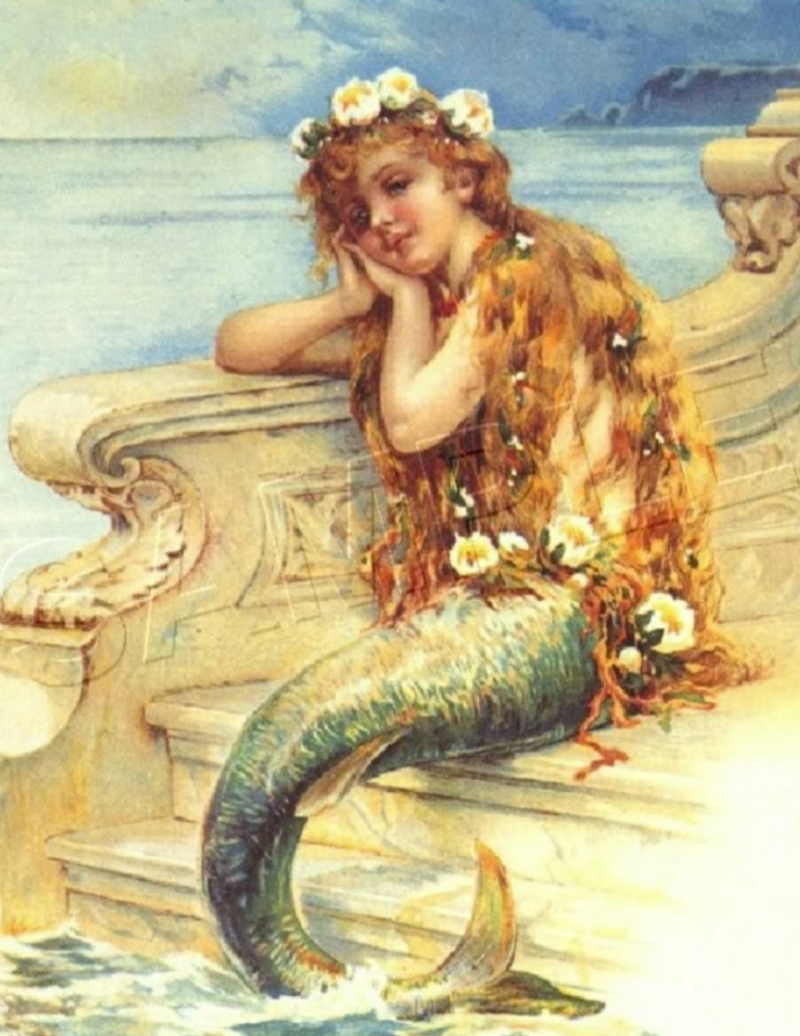
The story starts with the author describing how some parts of the oceans remain undiscovered for there was nothing such as cables and “many church steeples, piled one upon another” could ever fathom it. The writer wrote “We must not imagine that there is nothing at the bottom of the sea but bare yellow sand. No, indeed; the most singular flowers and plants grow there; the leaves and stems of which are so pliant, that the slightest agitation of the water causes them to stir as if they had a life. Fishes, both large and small, glide between the branches, as birds fly among the trees here upon the land. In the deepest spot of all, stands the castle of the Sea King. Its walls are built of coral, and the long, gothic windows are of the clearest amber. The roof is formed of shells, that open and close as the water flows over them. Their appearance is very beautiful, for in each lies a glittering pearl, which would be fit for the diadem of a queen.” If you think about it critically, the writer wants to tell his readers that we are all worlds of our own and almost all of us have never explored the vast depths of our beings. We simply suppose that there are no such unfathomable depths about the mystery of humans or if there were they would be something so insignificant to our lives– bare yellow sands. There are some people who have convinced themselves that the mysteries of the human beings should be studied meticulously rather than coming up with baseless suppositions. you may also see elements of poetry.
Andersen points out how the unfathomable depths are filled with the most singular of creatures that are sometimes perceived in the eyes of men and women only when they surface. You must take note the color of the ocean is blue which best represents human griefs and sorrows, which can be interpreted as a pool filled with different kinds of sadness. The ocean’s depth in the short story has never been explored by the people– except those who have fallen into eternal slumber from the storms’ ravaging lullabies (more on this later). In ocean kingdom, there lives the sea king who has been a widower for many years and is kept house only by his mother who wore twelve oysters on her fish’s tail because of her high birth, while others who are also with high birth are only allowed to wear six. The sea king has six beautiful daughters, but the youngest is the fairest of them all who also possess the most enchanting of voices.
The youngest one would always ask her grandmother about the world above the sea and keeps on wondering how beautiful would it be to experience what her grandmother has. The mermaids are not permitted to surface above the ocean until they reach the age of fifteen. When the five princesses are already permitted to land, sometimes they would rise above the ocean and sing in the events of storms when a ship is sailing to comfort the panics and fears of the people before they will be acquainted with their demise. But the sailors could not understand the song, they took it for the howling of the storm. And these things were never to be beautiful for them; for if the ship sank, the men were drowned, and their dead bodies alone reached the palace of the Sea King. Storms can also be interpreted as an event of unpleasant circumstances in our journey towards something. The people present in the ship are all the positive vibes we carry with us in the pursuit of certain journeys. Unpleasant circumstances can be the greatest destruction of our positive vibes yet the different types of sorrows persuade these good vibes to not fear their demise as they will linger forever in the pool of sadness. But sadness and all the good vibes do not speak the same language. There are times in our lives where we are so committed to breathing life to our visions. As we journey, we are met with difficulties and challenges that destroy our will, determination and make us question our commitment. Sometimes we realize that some storms cannot be weathered and there is only extreme sadness from disappointment to comfort us.
The youngest sister is not yet permitted to surface above the sea so she felt sad each time her older sisters do it. She would only stand quite alone, looking after them, ready to cry, only that the mermaids have no tears, and therefore they suffer more. You might have experiences in your life where you just really want to cry but can’t. The feeling is just too bad that you don’t feel any physical pain at all, yet you can feel the violent destruction inside you. Since this article interprets all sea creatures as different types of sorrows, mermaids not being able to relieve their sadness makes us consider that mermaids are the types of sorrows we humans can never relieve.
The little mermaid reaches the age of fifteen and is adorned by her grandmother by placing a wreath of white lilies in her hair and pearls. Instead of six oysters, her grandmother orders eight great oysters to attach themselves to the little mermaid to display her high rank. The little mermaid argues how the oysters hurt her, but the old lady replied Pride must suffer pain. It is natural for people to take pride in themselves about certain things and would even display their talents or skills to show everyone that they are someone who is one to watch. Pride will be met with countless of pains from the cynics who think they can profit greatly from their harsh and prejudiced judgments. The old lady wears twelve oysters but she was so deserving of that given the care she provides to her son and grandchildren. Despite having lived long, her grandmother has endured all the pains that others are not even willing to tolerate. If you take pride in something, make sure you are prepared to face all the countless difficulties you meet in life.
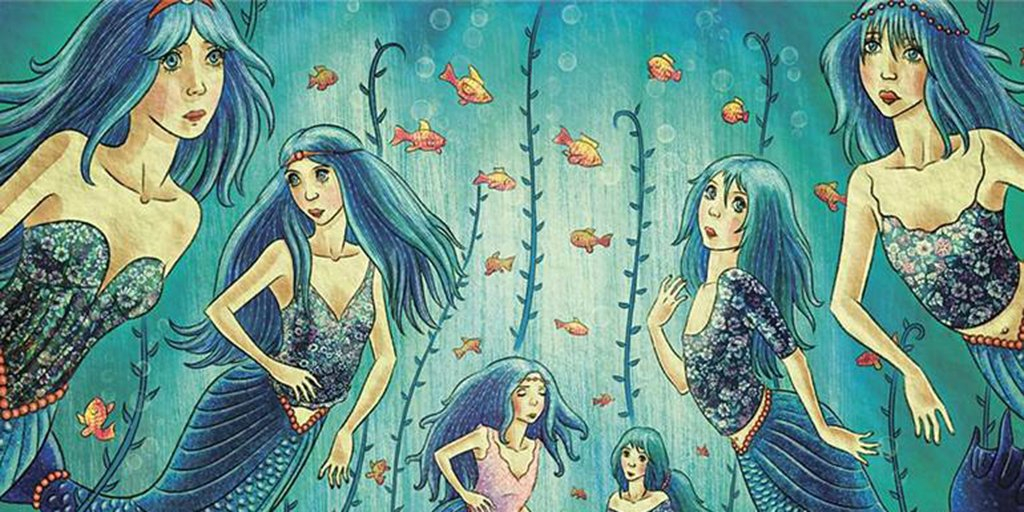
The sun had just set as she raised her head above the waves, but the clouds were tinged with crimson and gold, and through the glimmering twilight beamed the evening star in all its beauty. The sea was calm, and the air mild and fresh. A large ship, with three masts, lay becalmed on the water, with only one sail set; for not a breeze stiffed, and the sailors sat idle on a deck or amongst the rigging. There were music and song on board; and, as darkness came on, a hundred colored lanterns were lighted, as if the flags of all nations waved in the air. The little mermaid swam close to the cabin windows; and now and then, as the waves lifted her up, she could look in through clear glass window-panes, and see a number of well-dressed people within.
Among them was a young prince, the most beautiful of all, with large black eyes; he was sixteen years of age, and his birthday was being kept with much rejoicing. The sailors were dancing on deck, but when the prince came out of the cabin, more than a hundred rockets rose in the air, making it as bright as day. The little mermaid was so startled that she dived under water; and when she again stretched out her head, it appeared as if all the stars of heaven were falling around her, she had never seen such fireworks before. Great suns spurted fire about, splendid fireflies flew into the blue air, and everything was reflected in the clear, calm sea beneath. The ship itself was so brightly illuminated that all the people, and even the smallest rope, could be distinctly and plainly seen. And how handsome the young prince looked, as he pressed the hands of all present and smiled at them, while the music resounded through the clear night air.
It was very late, yet the little mermaid could not take her eyes from the ship, or from the beautiful prince. The colored lanterns had been extinguished, no more rockets rose in the air, and the cannon had ceased firing; but the sea became restless, and a moaning, grumbling sound could be heard beneath the waves: still the little mermaid remained by the cabin window, rocking up and down on the water, which enabled her to look in.
After a while, the sails were quickly unfurled, and the noble ship continued her passage; but soon the waves rose higher, heavy clouds darkened the sky, and lightning appeared in the distance. A dreadful storm was approaching; once more the sails were reefed, and the great ship pursued her flying course over the raging sea. The waves rose mountains high as if they would have overtopped the mast; but the ship dived like a swan between them, and then rose again on their lofty, foaming crests. To the little mermaid this appeared pleasant sport; not so to the sailors. At length the ship groaned and creaked; the thick planks gave way under the lashing of the sea as it broke over the deck; the mainmast snapped asunder like a reed; the ship lay over on her side, and the water rushed in.
The little mermaid now perceived that the crew was in danger; even she herself was obliged to be careful to avoid the beams and planks of the wreck which lay scattered on the water. At one moment it was so pitch dark that she could not see a single object, but a flash of lightning revealed the whole scene; she could see every one who had been on board excepting the prince; when the ship parted, she had seen him sink into the deep waves, and she was glad, for she thought he would now be with her; and then she remembered that human beings could not live in the water, so that when he got down to her father’s palace he would be quite dead. But he must not die. So she swam about among the beams and planks which strewed the surface of the sea, forgetting that they could crush her to pieces. Then she dived deeply under the dark waters, rising and falling with the waves, till at length she managed to reach the young prince, who was fast losing the power of swimming in that stormy sea. His limbs were failing him, his beautiful eyes were closed, and he would have died had not the little mermaid come to his assistance. She held his head above the water, and let the waves drift them where they would.
In the morning the storm had ceased, but of the ship, not a single fragment could be seen. The sun rose up red and glowing from the water, and its beams brought back the hue of health to the prince’s cheeks, but his eyes remained closed. The mermaid kissed his high, smooth forehead, and stroked back his wet hair; he seemed to her like the marble statue in her little garden, and she kissed him again and wished that he might live.
The six paragraphs above is a collection of factful sentences about how a seemingly perfect mood can transform into something intensely bitter. The little mermaid peeking into the windows of the cabin implies that good vibes are not aware of the presence of absolute sadness as sadness is not aware of the formation of storms. All sorrow knows is it takes over after an annihilation has been inflicted. The little mermaid sees how happy the prince is for it was his birthday and how handsome he is (a quality of a person or of a certain thing that we all want to preserve). When the storm approaches their delightful celebration, the ship faces mountains of waves and endures all the gifts the storm offered it. It didn’t endure for long and the little mermaid sees the process of how the ship is wrecked. Upon seeing the young prince with failing limbs from the desperation of not drowning from the raging waters, the little mermaid comes up with a shortlived comforting thought of how happy she’ll be knowing that the prince will be with him no. But, she remembers that humans can’t breathe underwater and, thus, die. So she rushes into the prince and saves him. Something good or worthy of being preserved is saved by a type of sorrow. Ironic, isn’t it? If you relate it to the lives of people, sadness can actually help you remember the happiness you have experienced before. In such situations, we cling to the happy memory and realize how much we treasure it– not realizing we are saving it from being forgotten in the graveyard of happiness or pool of sadness.
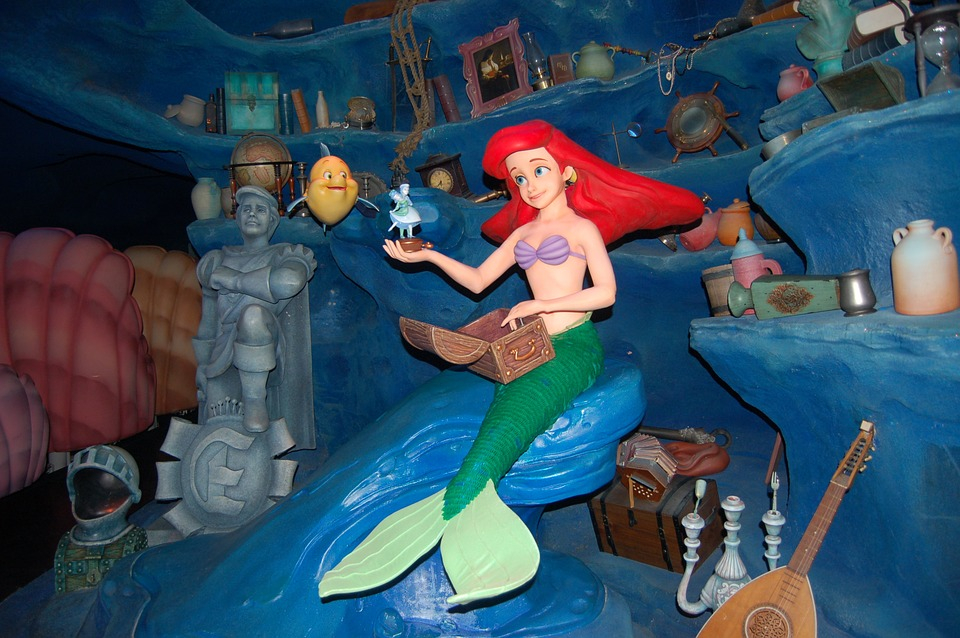
The prince regains consciousness and declares silently that the maiden in front of her has saved him. The little mermaid feels a pang of pain in her chest from not being acknowledged and dives back sorrowfully to her father’s castle. Some people think that sadness does nothing good for it is only meant to hurt and break you from the inside out. We should acknowledge and pay our gratitude to sadness for they are essential in our lives. Sadness makes us realize the significant things in life which enable us to better understand ourselves.
She had always been silent and thoughtful, and now she was more so than ever. Her sisters asked her what she had seen during her first visit to the surface of the water, but she would tell them nothing. Many an evening and morning did she rise to the place where she had left the prince. She saw the fruits in the garden ripen till they were gathered, the snow on the tops of the mountains melt away; but she never saw the prince, and therefore she returned home, always more sorrowful than before. It was her only comfort to sit in her own little garden, and fling her arm around the beautiful marble statue which was like the prince; but she gave up tending her flowers, and they grew in wild confusion over the paths, twining their long leaves and stems around the branches of the trees, so that the whole place became dark and gloomy.
This paragraph tells us how desperation gets the best of us makes us completely forget about the things we cared about. The line “…they (flowers) grew in wild confusion over the paths, twining their long leaves and stems round the branches of the trees, so that the whole place became dark and gloomy.” symbolizes best one of the effects of desperation. We tend to forget some parts of ourselves that we allow time to cast a dark curse that turns something pleasant into very gloomy. By degrees, the little mermaid can bear the burden no more so she shares it with her sisters until words spread to one of an intimate friend who knows where the prince lives. She then spends many evenings on the water near the prince’s palace. The visits have been frequenting and she hears two fishermen talking about the good things of the doings of the young prince. She is glad to have saved his life. She became more interested in humans and the activities they do on the land.
The little mermaid asked if humans die or if they can live forever, or die similarly as mermaids become foams of the sea when their demise are met. The old lady explained the notion of souls to her. “…they must also die, and their term of life is even shorter than ours. We sometimes live to three hundred years, but when we cease to exist here we only become the foam on the surface of the water, and we have not even a grave down here of those we love. We have not immortal souls, we shall never live again; but, like the green sea-weed, when once it has been cut off, we can never flourish more. Human beings, on the contrary, have a soul which lives forever, lives after the body has been turned to dust. It rises up through the clear, pure air beyond the glittering stars. As we rise out of the water and behold all the land of the earth, so do they rise to unknown and glorious regions which we shall never see.” This can be interpreted as sadness having a longer time to live than all things pleasant, although completely eradicated when a resolution is discovered. The reply of the old lady is a comparison of the span of sadness’ time and the resilience of happiness in the life of a person. Imagine yourself with a broken heart. It takes you some time to recover right? Whereas laughing over something stupid is only transient.
The little mermaid grows an interest in acquiring a soul and asks the old lady if it were possible to win an immortal soul. The old lady answered “No, unless a man were to love you so much that you were more to him than his father or mother; and if all his thoughts and all his love were fixed upon you, and the priest placed his right hand on yours, and he promised to be true to you here and hereafter, then his soul would glide into your body and you would obtain a share in the future happiness of mankind. He would give a soul to you and retain his own as well, but this can never happen. Your fish’s tail, which amongst us is considered so beautiful, is thought on earth to be quite ugly; they do not know any better, and they think it necessary to have two stout props, which they call legs, in order to be handsome.” The answer has somehow dispirited the little mermaid for there were so many conditions that have to be met for her a human to love her. How could a man ever love a lady with a body that ends in a fish’s tail?

Determined more than ever, she goes to where the sea witch lives. Despite all the awful creatures that are met before her, the thought of the prince compelled her to move forward. These awful creatures refer to the kind of sadness paired with ill-intentions that humans. This part symbolizes the waning courage of people that recover immediately just from thinking about them. After all, it’s not just really about the prince that the mermaid is up to, rather the desire to be granted an immortal soul. The sea witch knows the intentions of the little mermaid even before she gets the chance to open her mouth. “it is very stupid of you, but you shall have your way, and it will bring you to sorrow, my pretty princess. You want to get rid of your fish’s tail, and to have two supports instead of it, like human beings on earth, so that the young prince may fall in love with you, and that you may have an immortal soul... I will prepare a draught for you, with which you must swim to land tomorrow before sunrise, and sit down on the shore and drink it. Your tail will then disappear, and shrink up into what mankind calls legs, and you will feel great pain as if a sword were passing through you. But all who see you will say that you are the prettiest little human being they ever saw. You will still have the same floating gracefulness of movement, and no dancer will ever tread so lightly; but at every step, you take it will feel as if you were treading upon sharp knives, and that the blood must flow. If you will bear all this, I will help you.” These conditions are far too much for anyone to endure, but the little mermaid’s determination (to make the prince fall in love with her and, thus, be granted an immortal soul) makes her accept all of these conditions. To make things worse, the voice of the little mermaid which is the most beautiful on earth is used to pay the sea-witch. The sea-witch convinces her that her expressive eyes can do all the talking.
She does what has been instructed and lays like a dead person as she feels an extreme pain. It is as if a two-edged sword went through her. The prince found her and leads her to the palace. She disregards all the pain she feels each step rather willingly. She remained graceful however despite feeling the needles or sharp knives cut through her. This clearly suggests the saying pride must endure pain. She has chosen this and must take pride in it. The pain cannot be perceived by those who are present for she handles it with all the graces that the world offers. The pain she continues to feel cannot be expressed through her lovely eyes to the prince for there is only love in it. During the event in the prince’s palace, she dances so gracefully that everyone is stricken with awe. Her expressive eyes appealed to the heart of the audience. Upon seeing the prince in sheer gaiety, she dances to her heart’s content ignoring her torture.
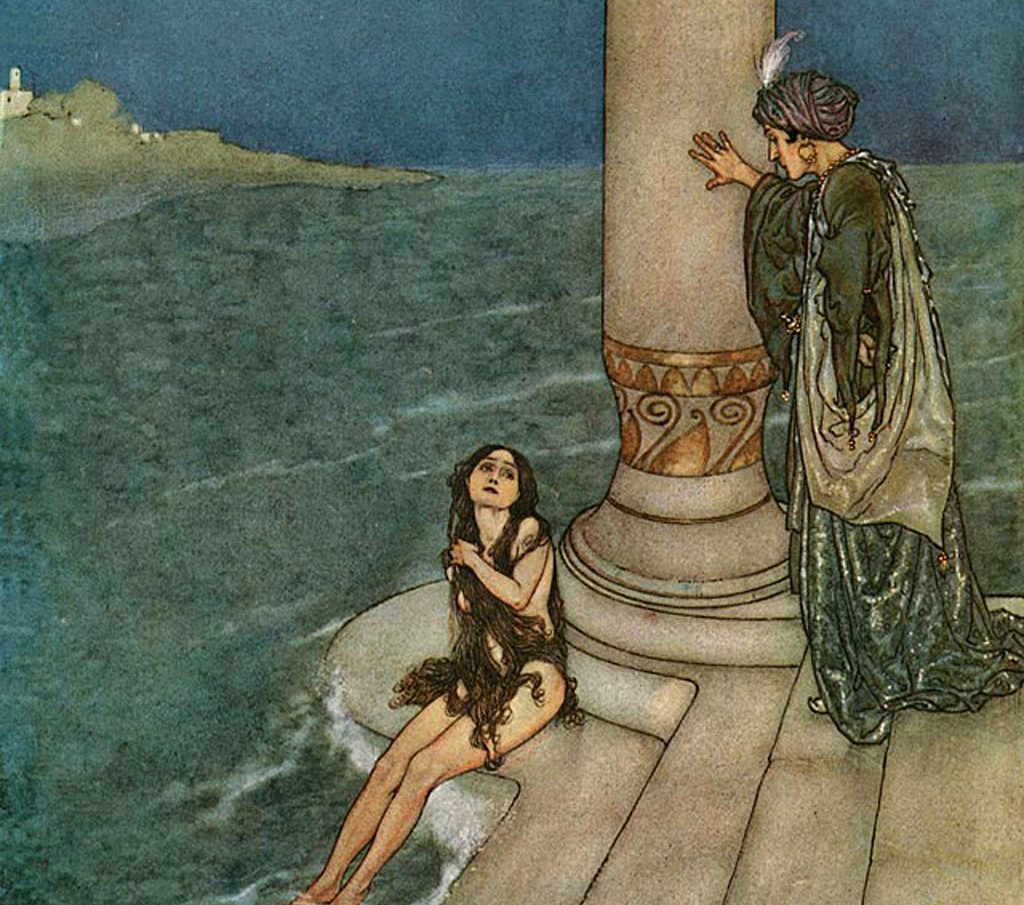
Days have passed and the little mermaid grows more fondly of him and he loved her as he would love a little child, but it never came into his head to make her his wife. With her expressive eyes, the little mermaid “seemed” to say “Do you not love me the best of them all?” The answer of the prince made the little mermaid more sorrowful than ever for he knows not that it was her who saved him from the ship that was wrecked. He thought it was the doings of a land maiden that saved him from the grasp of death– she is the only one in the world whom I could love; but you are like her, and you have almost driven her image out of my mind.
It is said that the prince has to marry and is forced to journey to another region to meet the lovely princess to whom he will be wedded. Upon seeing the sight of the princess, the prince is filled with ecstasy as he will be married to the maiden whom he thinks had saved him. The young prince tells the little mermaid “…my fondest hopes are all fulfilled. You will rejoice at my happiness; for your devotion to me is great and sincere.” A dessert’s blessing; an ocean’s curse. Her heart breaks in agony for the conditions she had willingly taken are all in vain.
During the wedding, the little mermaid danced more elegantly than before and she laughed and danced with the rest, while the thoughts of death were in her heart. She faces the ocean and sees her sisters rising on the water with hair that no longer waved in the wind for they were cut. The hair of mermaids are significant to them as their ranks are, yet they have willingly sacrificed them for their little sister to come back to the water as a mermaid and enjoy the three-hundred-year lifetime of a mermaid. The sisters instructed the little mermaid to thrust the sharp knife to the prince’s heart before the first light of ray and let the warm blood fall upon her feet to grow her fish’s tail back. But, she could not harm the prince for she loves him so much. She throws the knife and herself into the ocean and feels herself turning into sea foams.
Due to the good act deed that was performed by the mermaid, the mermaid is given the chance to be granted a soul. She floats around the world with the daughters of the air who can obtain a soul when there three hundred years of doing good deeds are done. It’s the first time that she feels her eyes well with tears. From this, it can be concluded that sadness do not only destroy or bury happiness, in sadness we are granted with hope when we think all hopes in the world have abandoned us.
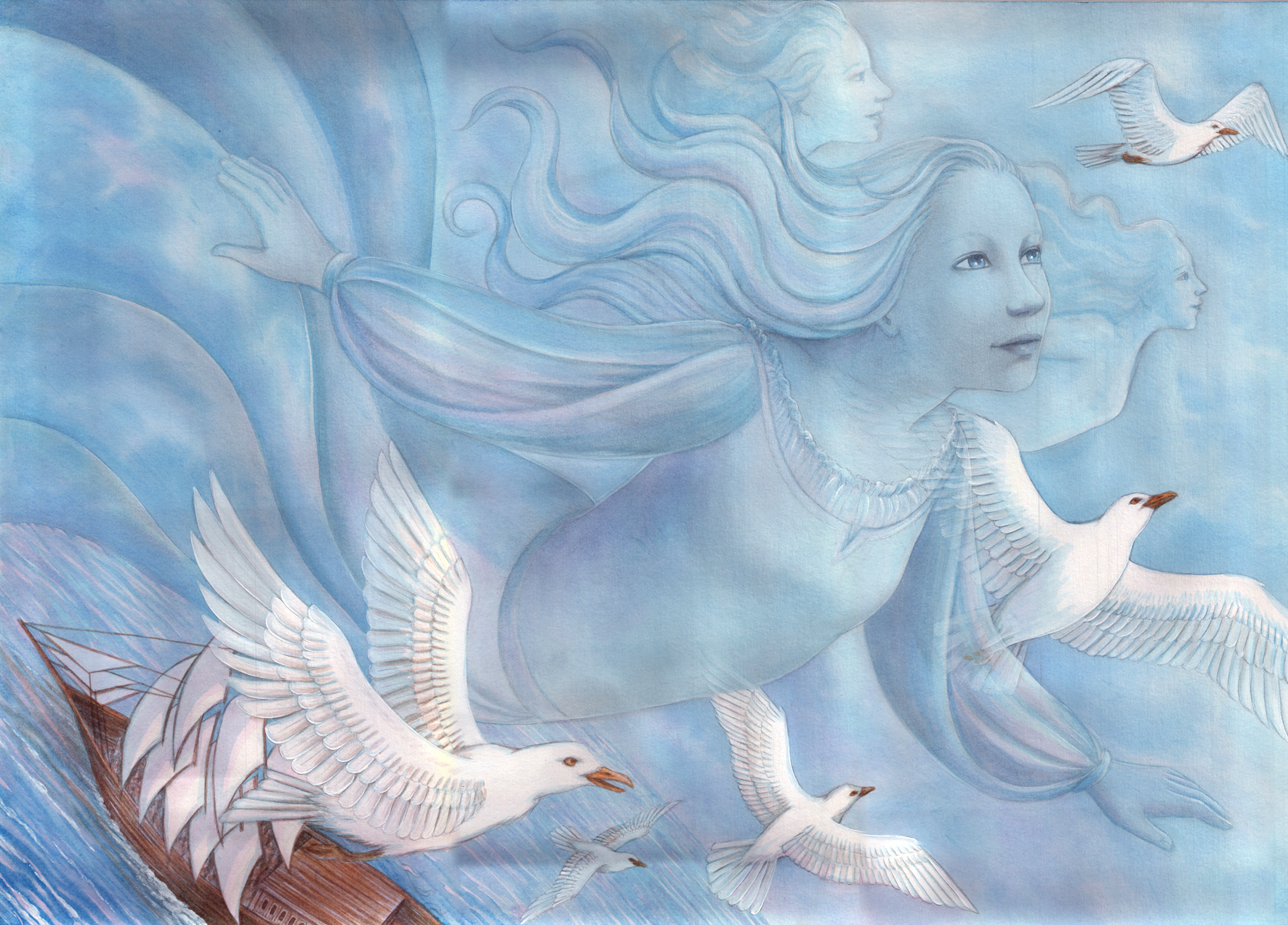
Han’s Christian Andersen’s The Little Mermaid consists a lot of symbols that are commonly missed by the readers for their focus is directed only to the desperation of a being to convince the other of loving her. The short story that we have just dissected is not merely about an overwrought unrequited love; rather, it speaks so much of a journey and all the cost that needs to be paid for our greatest wish to be granted with the escort of sadness that grants hopes.


